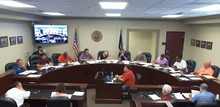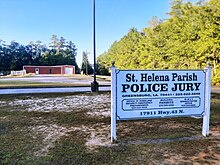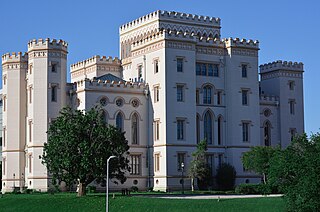
Baton Rouge is the capital city of the U.S. state of Louisiana. Located on the eastern bank of the Mississippi River, it had a population of 227,470 as of 2020; it is the seat of Louisiana's most populous parish (county-equivalent), East Baton Rouge Parish, and the center of Louisiana's second-largest metropolitan area, Greater Baton Rouge.
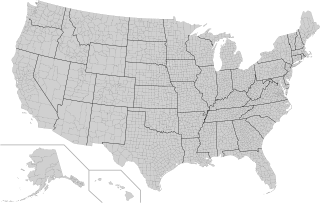
In the United States, a county or county equivalent is an administrative or political subdivision of a state which consists of a geographic region with specific boundaries and usually some level of governmental authority. The term "county" is used in 48 states, while Louisiana and Alaska have functionally equivalent subdivisions called parishes and boroughs, respectively. The specific governmental powers of counties vary widely between the states, with many providing some level of services to civil townships, municipalities, and unincorporated areas. Certain municipalities are in multiple counties; New York City is uniquely partitioned into five counties, referred to at the city government level as boroughs. Some municipalities have been consolidated with their county government to form consolidated city-counties, or have been legally separated from counties altogether to form independent cities. Conversely, those counties in Connecticut, Rhode Island, eight of Massachusetts's 14 counties, and Alaska's Unorganized Borough have no government power, existing only as geographic distinctions.

Tensas Parish is a parish located in the northeastern section of the State of Louisiana; its eastern border is the Mississippi River. As of the 2020 census, the population was 4,147. It is the least populated parish in Louisiana. The parish seat is St. Joseph. The name Tensas is derived from the historic indigenous Taensa people. The parish was founded in 1843 following Indian Removal.

Beauregard Parish is a parish located in the U.S. state of Louisiana. As of the 2020 census, the population was 36,549. The parish seat is DeRidder. The parish was formed on January 1, 1913.
In United States local government, a consolidated city-county is formed when one or more cities and their surrounding county merge into one unified jurisdiction. As such it is a type of unitary authority that has the governmental powers of both a municipal corporation and a county.
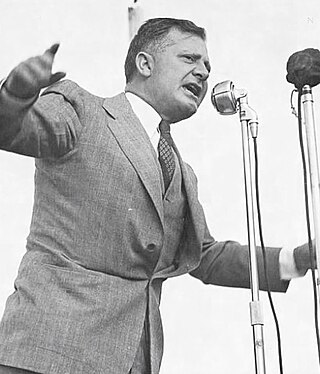
Earl Kemp Long was an American politician who served as the 45th governor of Louisiana for nine years. A member of the Democratic Party, he held the same position that his brother, Huey Long, held years earlier (1928–1932).

The Louisiana Constitution is legally named the Constitution of the State of Louisiana and commonly called the Louisiana Constitution of 1974, and the Constitution of 1974. The constitution is the cornerstone of the law of Louisiana ensuring the rights of individuals, describing the distribution and power of state officials and local government, establishes the state and city civil service systems, creates and defines the operation of a state lottery, and the manner of revising the constitution.
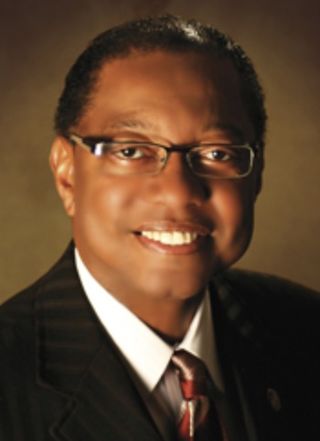
Melvin Lee "Kip" Holden, is an American politician who served from 2005 to 2016 as the Democratic Mayor-President of Baton Rouge and East Baton Rouge Parish, Louisiana. The parish includes the state capital of Baton Rouge and smaller suburban cities such as Baker, Central City, and Zachary.
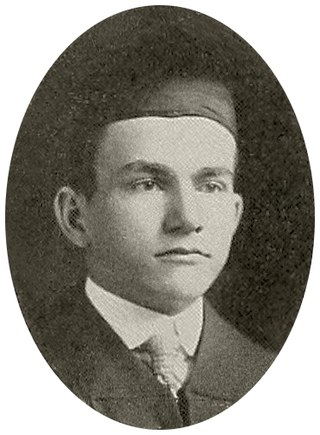
Leander Henry Perez Sr. was an American Democratic Party political boss of Plaquemines and St. Bernard parishes in southeastern Louisiana during the middle third of the 20th century. Officially, he served as a district judge, later as district attorney, and as president of the Plaquemines Parish Commission Council. He was known for leading efforts to enforce and preserve segregation.
A board of supervisors is a governmental body that oversees the operation of county government in the U.S. states of Arizona, California, Iowa, Mississippi, Virginia, and Wisconsin, as well as 16 counties in New York. There are equivalent agencies in other states.

The Louisiana State Police is the state police agency of Louisiana, which has jurisdiction anywhere in the state, headquartered in Baton Rouge. It falls under the authority of the Louisiana Department of Public Safety & Corrections. It is officially known in that organization as the Office of State Police.
The Louisiana Democratic Party is the affiliate of the Democratic Party in the state of Louisiana.
Eric LaFleur is an American attorney and politician. A Democrat, LaFleur is a former member of the Louisiana State Senate for the 28th district, serving from 2008 until 2020. Earlier he was a member of the Louisiana House of Representatives for District 38 from 2000 to 2008. He was first elected without opposition to an open seat vacated by Dirk Deville. He was re-elected four years later in 2003 with 81 percent of the vote.

Sharon Weston Broome is the mayor-president of Baton Rouge, Louisiana. She served in the Louisiana State Senate representing the 15th district from 2005 to 2016. She was elected mayor-president in a runoff election held on December 10, 2016. Broome is the first African-American woman to serve as mayor-president.

William Harold Nungesser is an American politician serving as the 54th lieutenant governor of Louisiana since 2016. A member of the Republican Party, Nungesser is also the former president of the Plaquemines Parish Commission, having been re-elected to a second four-year term in the 2010 general election in which he topped two opponents with more than 71 percent of the vote. His second term as parish president began on January 1, 2011, and ended four years later.

The foundation of Baton Rouge, Louisiana, dates to 1721, at the site of a bâton rouge or "red stick" Muscogee boundary marker. It became the state capital of Louisiana in 1849.
